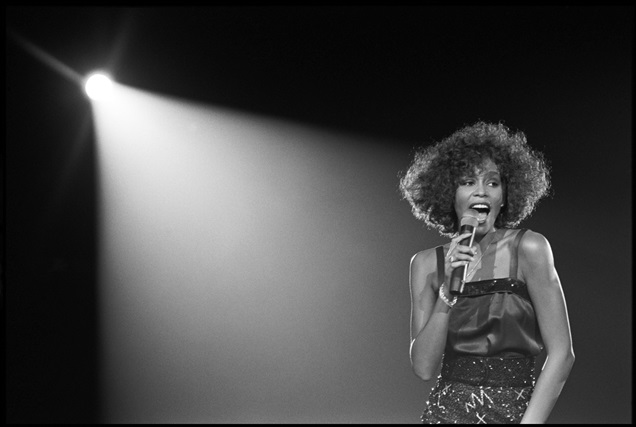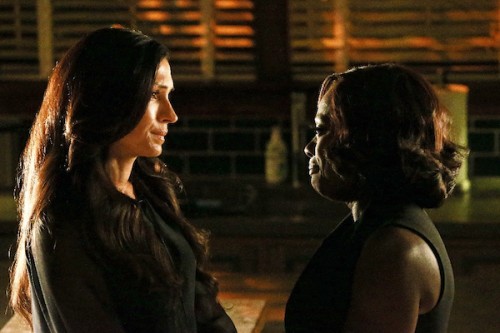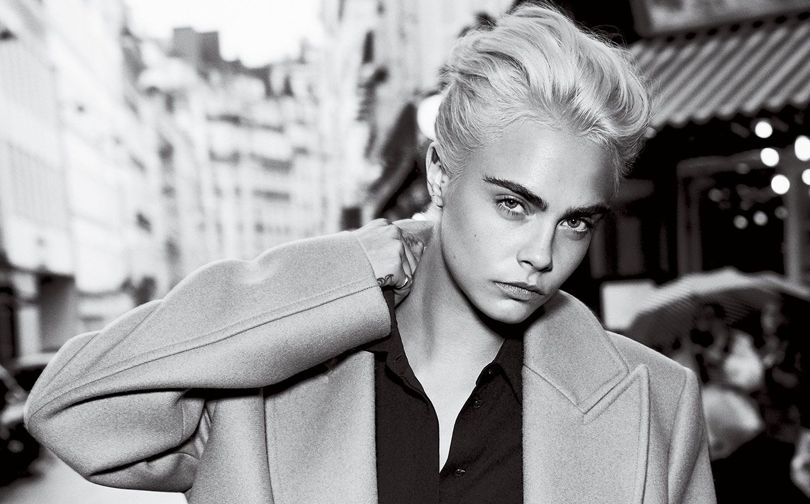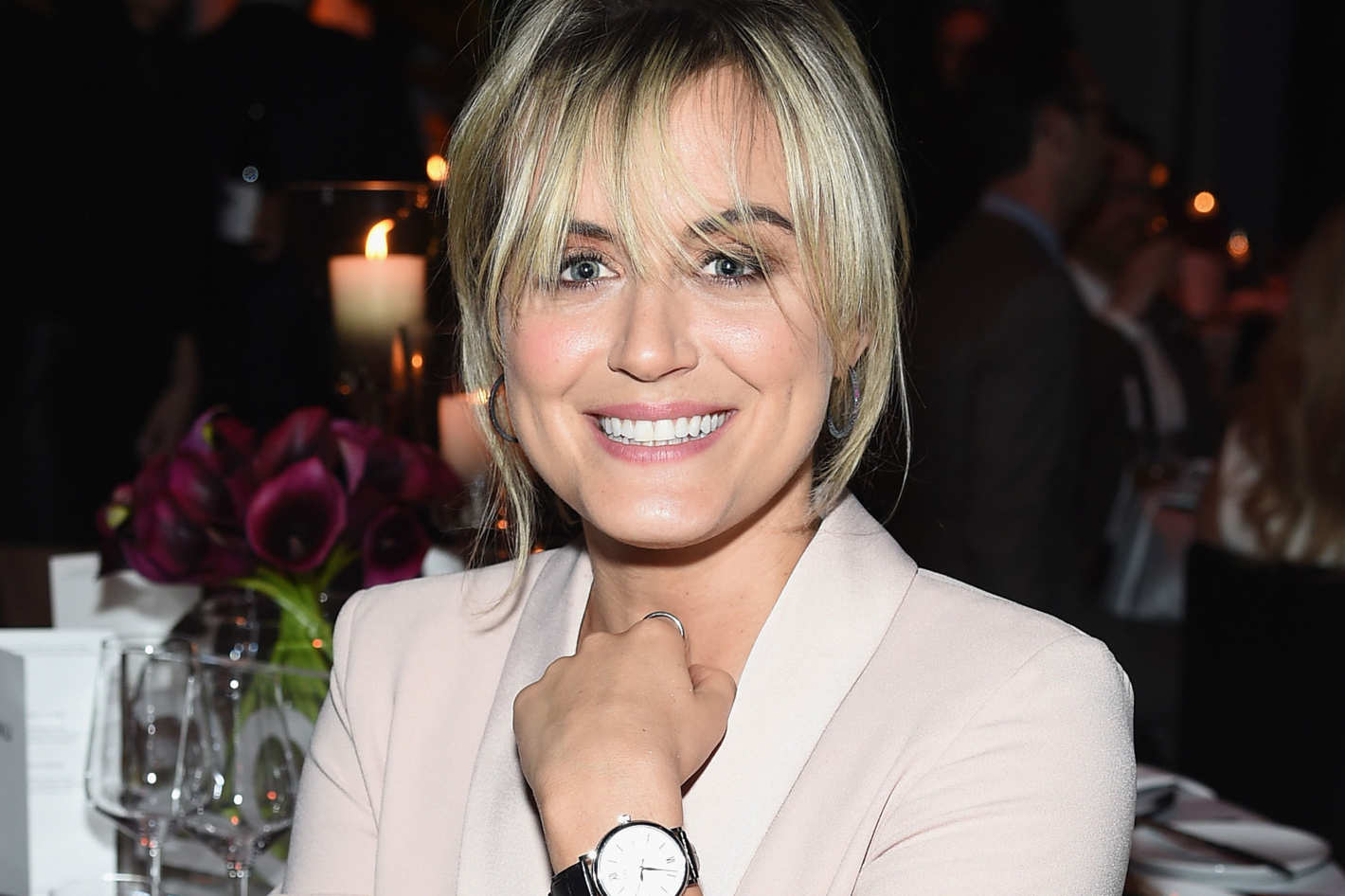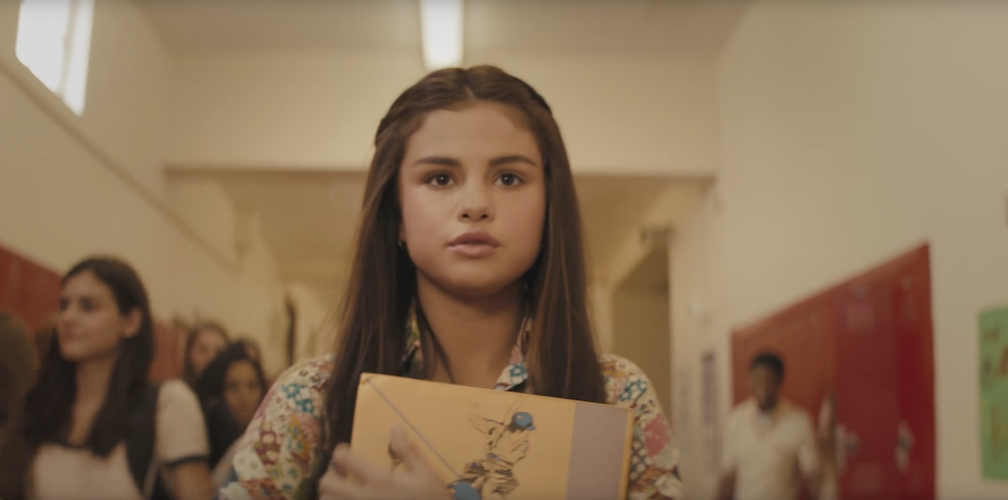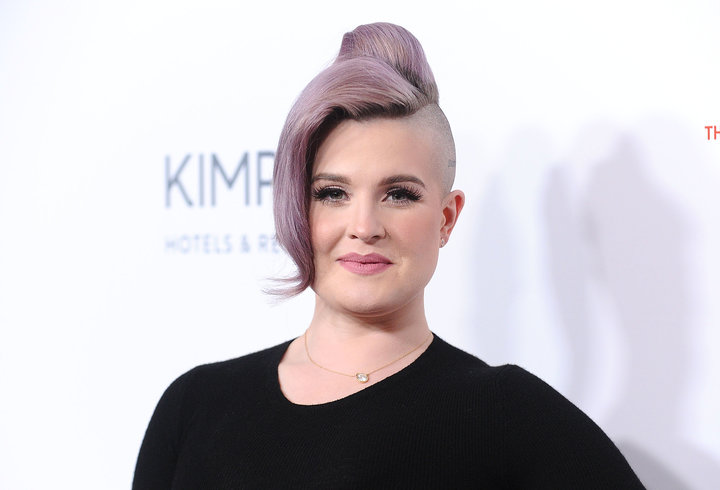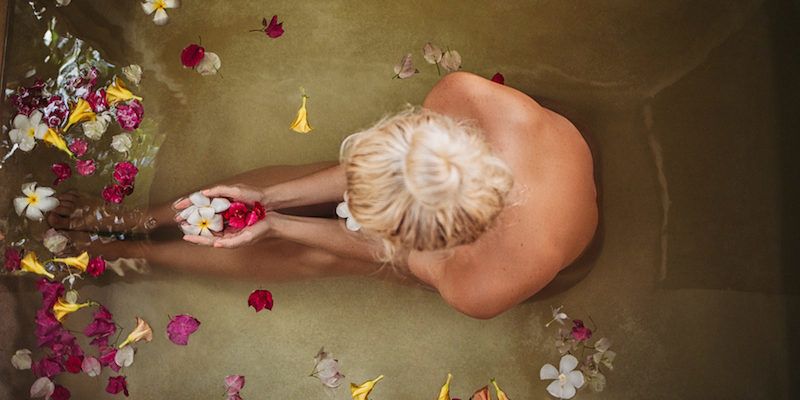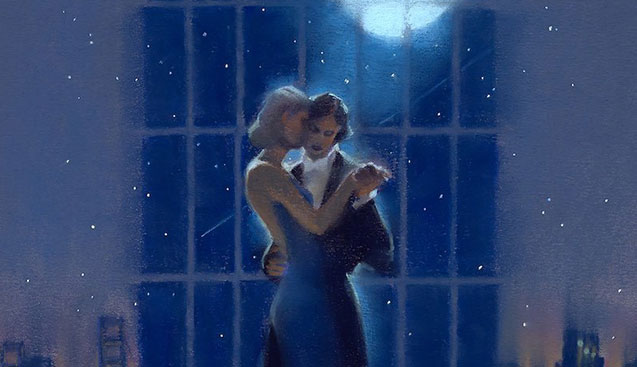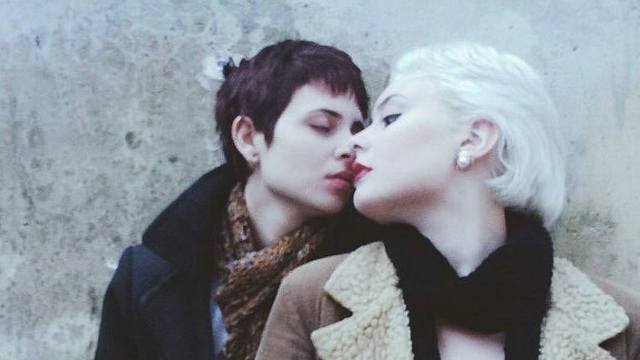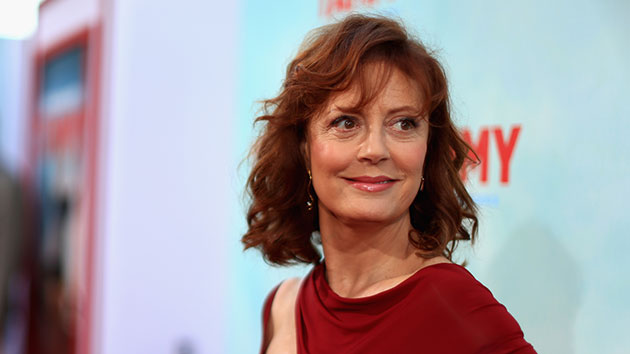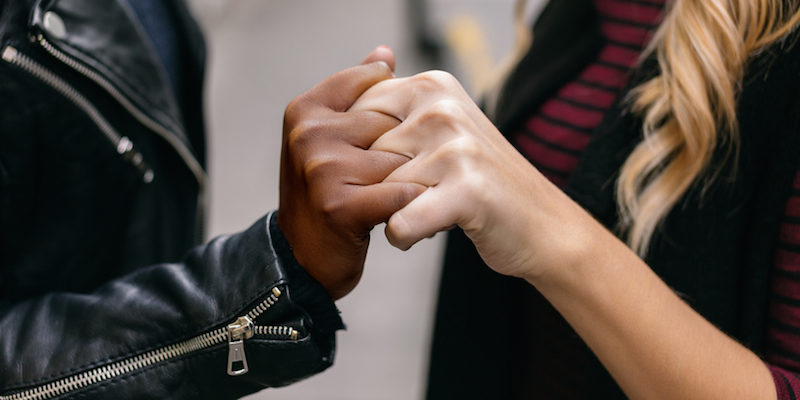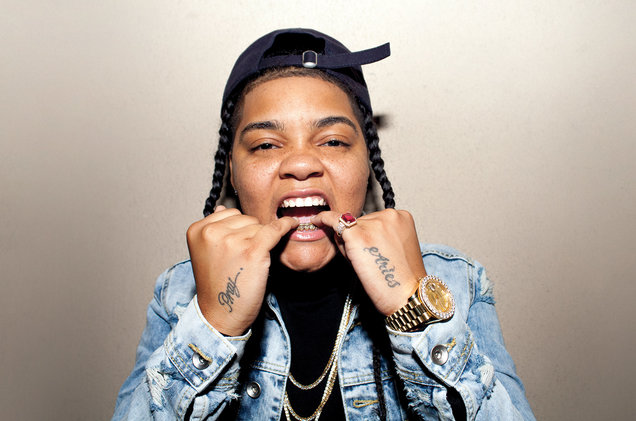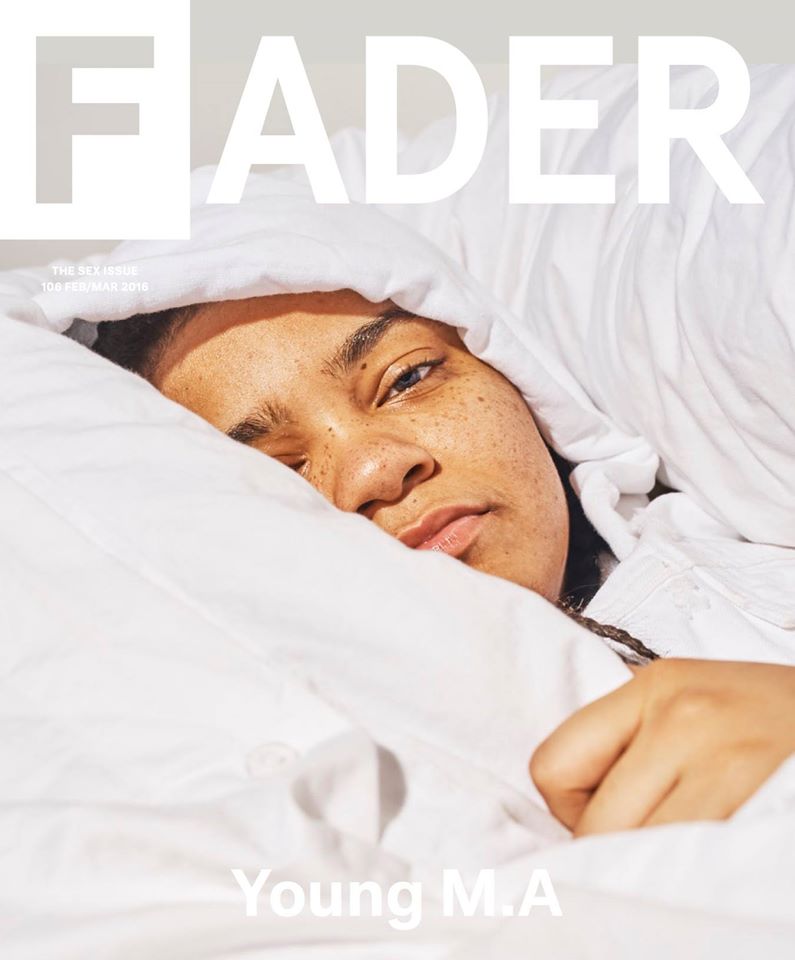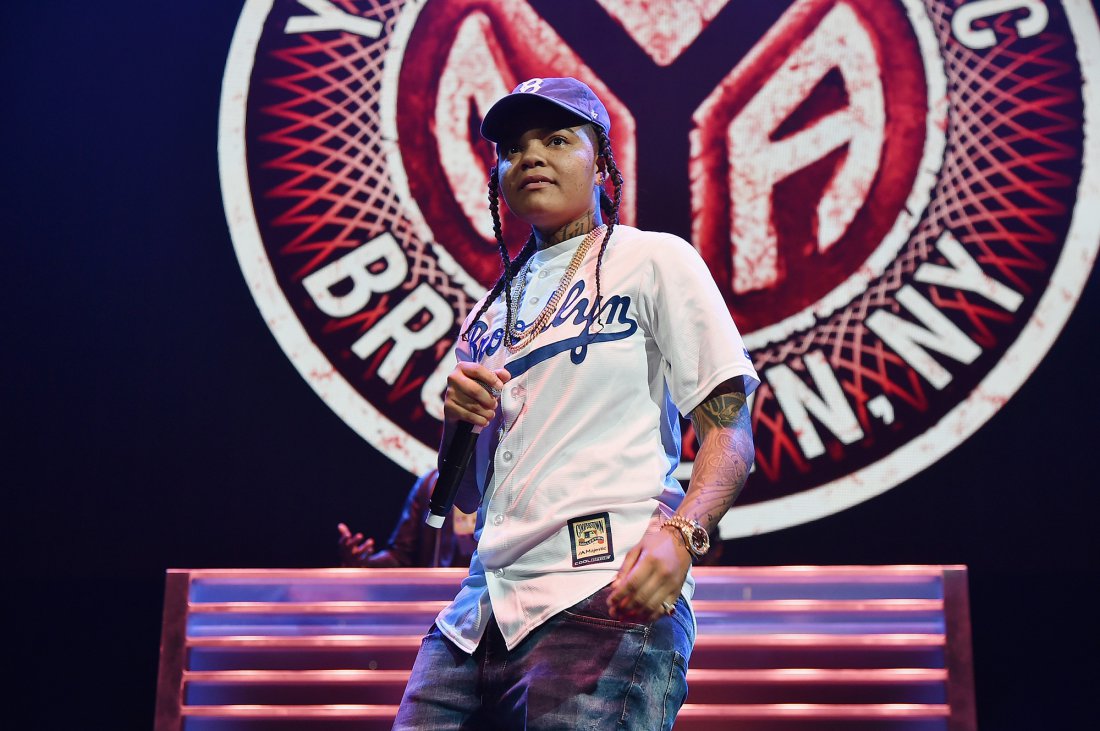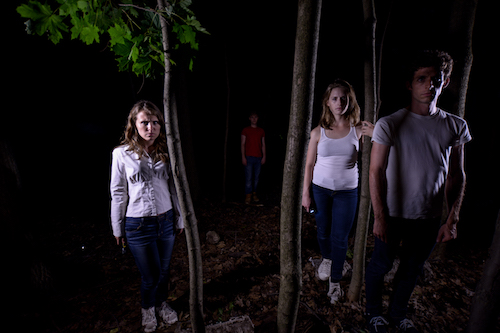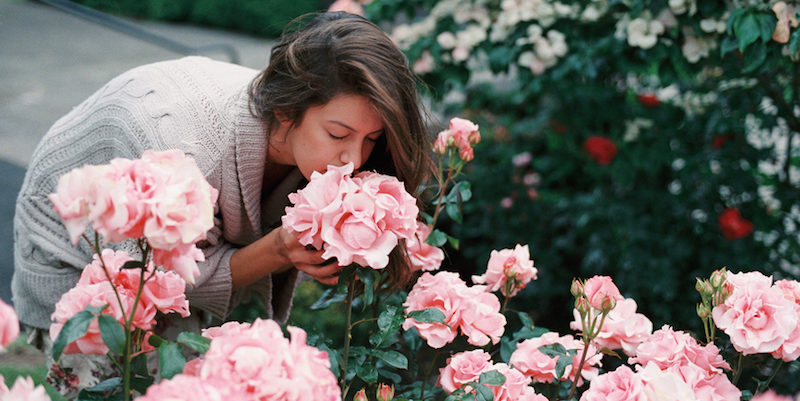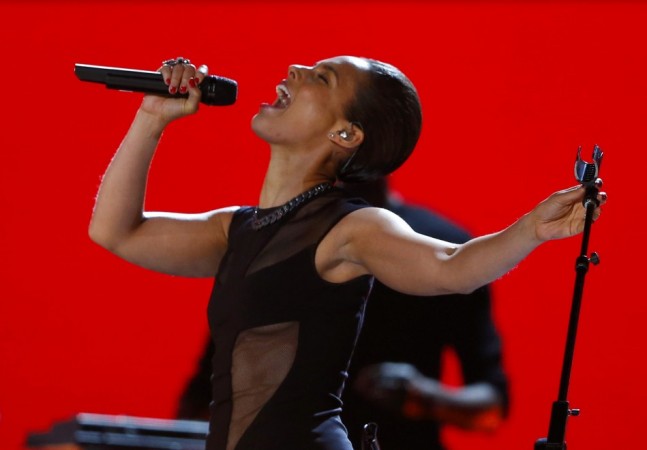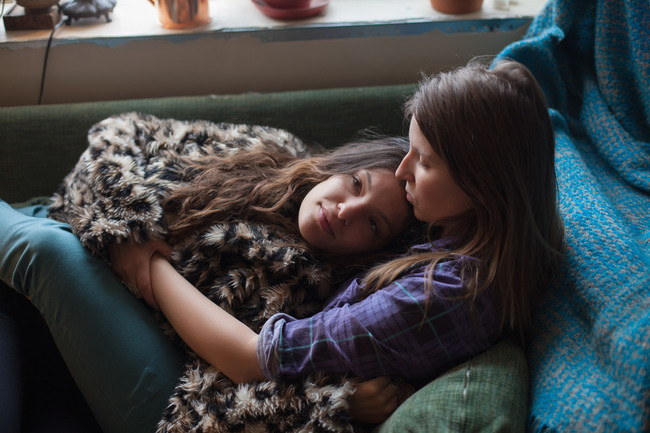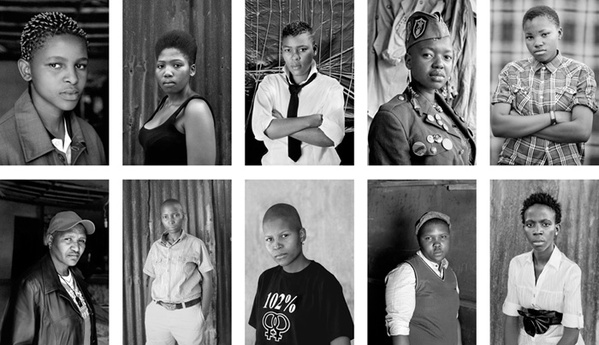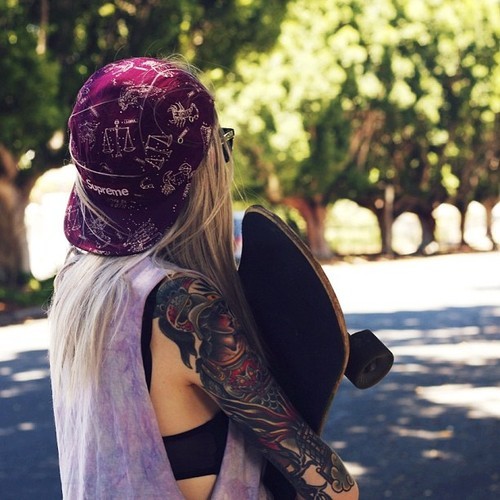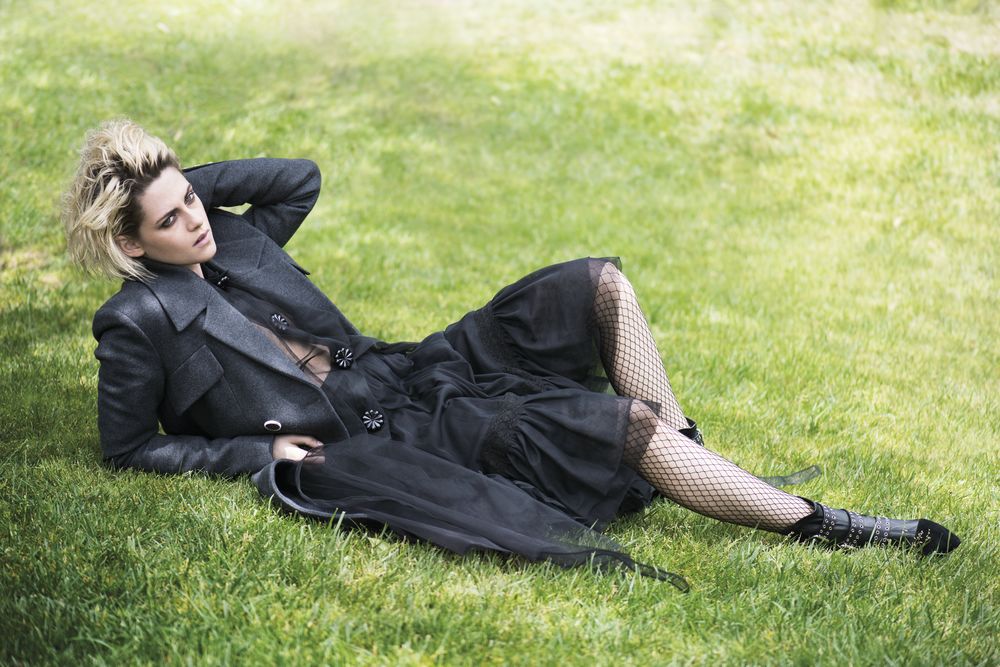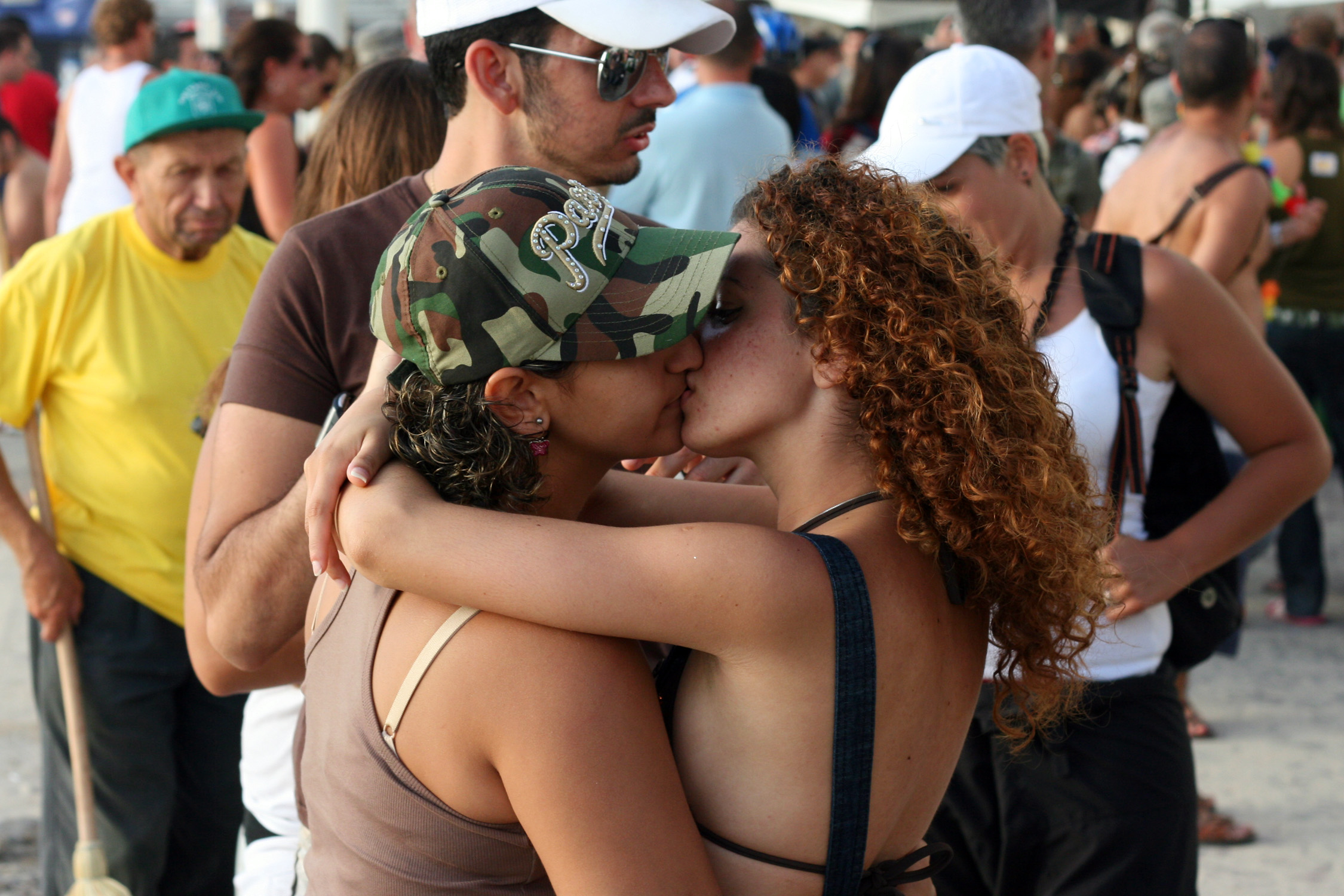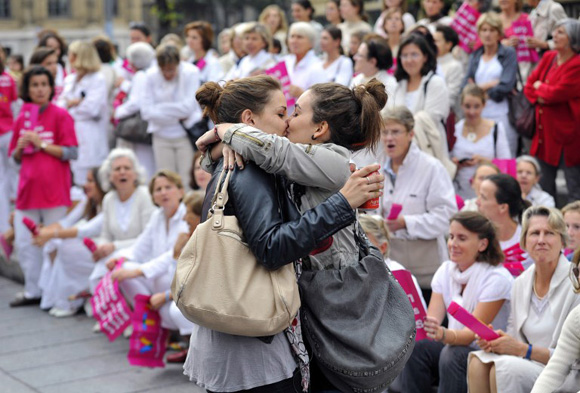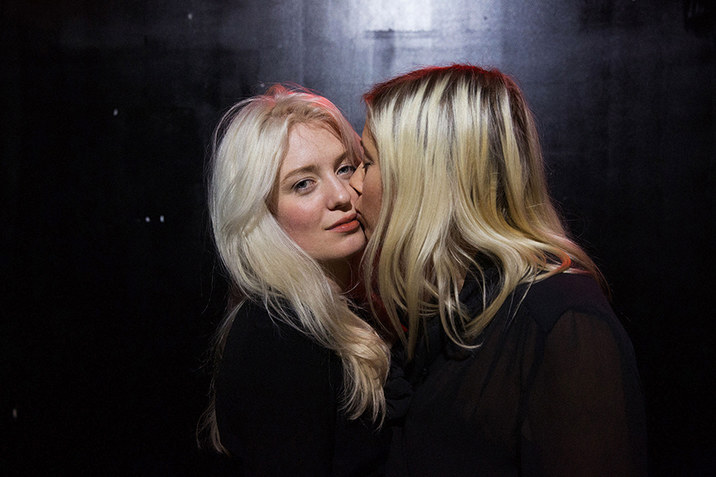LGBTQ+ voices, communities and public dialogue, often focus on issues that concern specific identities (the more widely accepted and talked about the identity, the better).
This is absolutely necessary, but what we need to remember sometimes is that not all the people who have reached that point of sharing their experiences with others, giving useful advice about coming out, relationships, advocacy and support, had their identities, preferences and desires figured from the very beginning. In fact, most LGBTQ+ youth go through a questioning process.
That happens not only because it is absolutely normal for people to reevaluate their choices as they go through different things or to experience situations in their lives fluidly, but also because we live in a hetero-cis/normative society that sets heterosexual, cisgender existences as the default, so that everyone else might first have to go through a process of doubting, shaming and dismissing themselves and their feelings as if they’re something that “can’t be”, that doesn’t make sense, something that’s just in their minds, or something they can’t easily validate just yet. But that’s alright.
Think of that: have you often heard people around you worrying whether they might be straight, or questioning their sexuality because it occurred to them that heterosexuality may be a possibility? I don’t think so.
Society’s standards for us to initially be heterosexual (and sexual, for that matter), make it evident that people are most likely to question this given sexuality when they feel it doesn’t explain their feelings and experiences. A paper published in the Journal of Sex Research shows that in a survey answered by women who identified as heterosexual, most of them were deliberate in their answers and had come to a conscious conclusion about their heterosexuality “after contemplating alternative possibilities”.
Such effects are even more visible in questioning our gender. Our society is strongly gendered, aligning bodies with preferences with behaviors, and limiting us within a binary system of only male and female that we are assigned at birth without even having a concept of what gender might be. We grow up all our lives being taught that we should do X things, behave a Y way and make Z choices based on our genitals and these lines can truly be drawn very strictly around us.
That makes it even harder for us to question whether the gender we have been assigned at birth does not feel entirely right for us, since questioning even gender norms, let alone gender identities, is not something that society encourages.
For non-binary questioning people things get a lot more complicated, since genders that fall outside the gender binary are outright invalidated by public discourse.
So what should a young person expect when they’re questioning? What should you keep in mind when you’re unsure, or experimenting about your sexuality and/or gender identity?
What should you ideally be demanding other people around you to do in order to make you feel more comfortable and at home during this process – that might either lead to concrete results, or may never end up doing so?
1. Define in your own words.
I can hardly remember questioning my sexuality though I’m sure it kind of happened – the thing is that it did happen but I accepted the change too quickly, so my questioning period wasn’t that long. I identified as straight until, during my adolescence, I started getting strong crushes on female celebrities. The explanation was pretty simple: having grown up in a homophobic and biphobic environment, I was homophobic myself… until I wasn’t.
Reading gay fanfiction about my favorite characters was what actually helped me stop being a bigot, and that was the solid and concrete turning point where I woke up and realized that my crushes on women were actually crushes, and not simply fangirling on celebrities I admired. I came to accept that I might, after all, have experienced a crush or two for girls in real life as well, and boom! There was even a pre-existing word for it: I was bisexual.
Soon, after I heard about non-binary identities and met non-binary people, I shifted more towards identifying as pansexual, as I realized that there weren’t only two genders and that people’s gender was not a determining factor for me to feel attracted to them.
It was not that simple, however, when I recently started questioning my gender, and I will say more about it later. When this started taking shape in my mind, the first thing that helped me was to try and put into words whatever messy raw material I possessed at that moment; the very fresh, blurry feelings that you might not yet be able to distinguish, but you can say a thing or two about them.
It doesn’t matter if you don’t know exactly how to describe everything that you’re feeling, or if you’ve never heard of people with similar experiences to yours before, or even if you have – but the experiences you’ve heard of are slightly different than your own, or were dealt with differently. No one else can tell you how to feel, or experience things, simply because no one else feels and experiences things for you, without you. Only you know what’s valid for you, and even if you don’t know for sure what works and what doesn’t.
Do this for you: take your time to define yourself and not let anyone tell you that “you’re not gay enough, trans enough, – something – enough”, that “it’s all in your mind” or that “it doesn’t work this way”.
2. Put a label on it – or don’t.
Honestly, in this whole questioning process this is the only rule: do shit your way. I’m all for labels and yet I feel like things are still too fresh for me to grasp everything around the term “trans”, even though I might not be as cis as I always thought, even though trans is an umbrella term used to describe everyone whose gender and the way they experience it doesn’t entirely match what they were assigned at birth. When something is new for you, you might need time to feel like you’re in clothes that fit without it all being too disorientating.
Labels are really important if, by naming your identity helps in reminding you that it’s valid, that it exists, and that you can be included in communities. Labels, however, can also feel limiting if you see them as definitions that don’t quite define you. You don’t have to use them if they tend to limit you even more, or if they end up turning this into a competition of constantly having to prove yourself and people around you that you are what you are.
And if you use them, remember that they’re not books that you borrow from a library or DVDs that you have to return to the video club in excellent condition and pay for them. They’re not a checklist, or something that you have the privilege – or the gained right – to appropriate, and need to treat cautiously. Instead they’re something that you need to own, rephrase, adapt and transform in the way that feels right for you.
The main point of labels (and what makes them very useful) is not to make you feel like a mass-produced tin of soup, but to help and empower you, to give you the sense of community and solidarity with other people with similar experiences.
Don’t try to meet up to other people’s standards for your identity. Don’t follow behaviors that don’t fit your personality, or habits you don’t feel comfortable with, just to prove something that cannot be proven with a super market receipt or a college degree. The purpose of labels is not to dictate what you should or shouldn’t do or conform with to identify the way you do, so try not to think in terms of “I can’t be X because I don’t fit Y requirement”.
Don’t let anyone tell you you’re not trans enough if you don’t experience dysphoria, if you don’t try to pass, if you don’t fully transition or if you decide to not transition at all – whether it be socially, legally or medically. Don’t let anyone tell you you’re not asexual because you’ve had sex in the past. Don’t let anyone tell you that you’re not a lesbian or bisexual because you haven’t had sexual relations with girls yet.
You are something if you say you are. You may feel like one concrete thing or many things at once.
4. Be open.
Accept all possibilities. It’s not always that easy, especially when you’ve learnt that you’re something you whole life and then suddenly something starts feeling off – or, hell, if it’s been feeling off all along but this shit is not the easiest to deal with. If something has always been different but you haven’t yet figured it out, it’s okay. If something changes oh so suddenly, it’s not the end of the world. Both your gender and your sexuality may be fluidly changing during your life (and at this point remember to distinguish bisexuality from sexual fluidity, or questioning processes phases from sexual fluidity). Just because you identify as one – or ten – things now, it doesn’t mean that you’ll continue to feel that way for the rest of your life.
People (even from within the LGBT community) may try to invalidate the way you identify because, to them, it’s just a way of transitioning to another identity. For example, many people dismiss bisexual identities or experiences because they think it’s just a process of you accepting that you’re truly gay, or they may dismiss non-binary genders because they may assume that it’s just a phase, before coming to terms with being a binary trans person.
You’re not going through a phase: you’re going through a process. Everything that has to do with self-discovery is changeable, and everything is a process. Being bisexual, asexual and/or genderfluid, agender or whatever else is not a phase, but your true identity as long as you feel like it describes you.
And even if you stop identifying as bisexual and start feeling attraction only towards women, or if you decide that a binary gender identity suits you best, it doesn’t mean that the ways in which you used to identify were just phases. Imagine being in university until you become twenty four, and then getting a job as a lawyer.
Just because you’re a lawyer now and you’re not a student anymore, it doesn’t mean that you were never actually a student, or that this period of your life was any less real or valid than your lawyer period. You were a toddler once. Just because you’re an adult now, it doesn’t mean that your toddler period never existed. Your identity at a specific period of time is valid and it affects you and it is what matters, whether it’s going to change in the future or never change at all.
As Adrian Ballou writes about social transition in their article I think I might be trans: “You have the right to change [your name, pronouns, and/or gender expression] […] as often as you want or need.”
4. Ask, talk, read, research, participate…
Thankfully, even if our societies may sometimes not even acknowledge, let alone represent, sufficiently research, or talk about our identities, LGBTQ+ individuals and communities have started developing huge pools where you can fish knowledge and resources, available either online, in LGBTQ+ media, or in local communities.
Tumblr was a great space for me to start and meet people like me even before joining the LGBTQ+ group in my area. That being said, the latter was the best thing I ever did to myself. Reach for people with similar experiences to yours. Ask them how it was for them. You’re gonna discover that, even those who seem so sure about their identities now and you imagine them being born that way, did go through a questioning period when everything felt confusing as fuck.
The Internet is your friend. Search for online support groups. Tumblr is a space where you can find people willing to share their experiences with you and help you find what you’re looking for without having to come out to your surroundings just yet. The Asexual Visibility and Education Network is the widest online asexual community and can tremendously help you.
Here you can read why it’s important to value trans or trans-questioning identities that come without experiences of dysphoria and in this article that I quoted before you can find an amazing guide with resources useful if you think you might not be cis. This is a guide to non-binary identities, which are usually so hard to see represented and sufficiently talked about and this is an article (all of this writer’s articles, actually), that helped me tremendously when I recently started considering being non-binary and had absolutely no idea of where to start.
Also, gradually more books, articles and movies about LGBTQ+ issues are being brought to the public eye. Here is a book list as well as a movie list to read and watch if you’re questioning your sexuality, and you can find numerous TV series and websites – such as, of course, Kitschmix and Everyday Feminism – that represent you and share advice and experiences that you may relate to.
5. …but even if you do so, don’t expect others’ experiences to echo yours.
It’s most likely that someone, somewhere, has experienced things the exact same way that you do, and they can make you heave in relief when they affirm “I can relate!”
If you meet people with similar experiences, then that’s grand! But if you don’t, it doesn’t mean that there’s something wrong with you, or that your identity is not valid. There are countless ways to be gay, bi or trans (there are limitless ways to be a binary trans person, and limitless ways to be a non-binary trans person).
There’s no wrong or right way to be who you are – unless that something is hurting others and, in the case of your gender and/or sexuality, it shouldn’t be hurting anybody, given that they don’t hold homophobic, biphobic or transphobic views.
Also, don’t listen to people who clearly don’t understand. Demand from others to respect your feelings. When I first decided to share my concerns about the fixity of my gender with some of my childhood friends.
Since I wasn’t yet ready to discuss it with people of my LGBTQ+ community (for reasons I’ll share below) they insisted on discussing the whole issue as solely a gender expression issue (eg. it’s okay to want to dress with all kinds of clothes or to have sexual fantasies like that, you never had a “typically female” behavior and that doesn’t mean you’re not a women) which is all absolutely right, but the point was that I wanted to discuss things I felt were happening with my gender identity, and not things that had to do with my dressing style (which most of the time is, by the way, pretty femme), or my (un-)ladylike attitude.
I was heavily disappointed and that led me to avoid discussing this again for a while. When I shared my thoughts with a friend who doesn’t identify with a binary gender though, the response was much more helpful and made things look much simpler and easier to deal with.
And that brings us to:
6. Coming out
Coming out is great, but you are not obliged to do it if you’re not ready. No one is waiting behind a desk, staring at their watch and tapping their foot impatiently for you to declare Name, Surname, ID number, Pronouns, a fixed gender and sexuality all at once.
Keep in mind that people around you may also react in problematic ways that may affect you if you come out. First of all you need to protect yourself and do what feels right and necessary.
Ask yourself: is it important for you that the people around you know everything about you? What do you need them to know and what do you prefer to keep for yourself? Are you going to have problems with your family or colleagues if you come out? Are you going to have problems with yourself if you don’t come out?
Put your priorities straight (no pun intended) and don’t feel pressured by anyone to do anything. Questioning is hard enough without the possible homophobia, biphobia, acephobia and transphobia that you may encounter and have your process halted by. In the end, the people who care are those who will make an effort to understand, even if they’ve never been in your shoes before.
7. Don’t shame yourself.
I’m a guilty person by nature. You might find me apologizing for global warming, for the arrival of your period cramps, and for other things I shouldn’t normally feel guilty about. That usually comes with the feeling that I’m taking up too much space. I’m also a talkative person by nature, and an overly dramatic person by nature, so all that clashes a bit destructively: when something happens I’ll feel like it’s the end of the world, I’ll tell everyone and take all the time whining about it, and then I’ll feel too bad for whining too much and making a big fuss about myself.
Sometimes when I advocate bi/pan-sexual issues, or when I demand that my identity be respected, I might momentarily feel like I’m taking too much space from gay and bi people who are currently facing discrimination because they are in a relationship with a person of the same gender, while I’m in a so-called straight-passing privileged relationship. That’s all total bullshit, but it does feel like that when I’m in the mood of shaming myself.
This was all much more intense when I started questioning my gender. According to Natalie Reed:
Internalized cisnormativity leads us to assume that we need to prove that we’re trans to ourselves, but that being cis is simply taken as a given.”
Having spent my whole life thinking I was cis, I immediately tried to shut my feelings down because “they must be fake and un-true since they haven’t been here all along/since I haven’t been experiencing dysphoria the way I’ve heard other people describe”, “it must all be in my mind”, “I might be doing it for attention”, “maybe I’m appropriating lives that are not mine and issues I don’t share with other people”.
And, most importantly: “maybe I’m gonna take up too much space that I don’t deserve since for some people their gender and its connotations affects and shapes their lives to a great extent, while for me the way I’ll be gendered on the street might not make that much of a difference”.
Then I talked more, with people who’ve gone through the same things and it was incredibly helpful. I found out that these are thoughts some of them have had in the past, or continue to have now that their identity makes more sense. Or I found out that their identity never ended up making perfect sense but hey, it doesn’t always have to.
They told me to stop shaming myself for what I was feeling and to give value to the way that my needs present themselves to me. This made a huge difference to other advice such as “don’t give it much thought, you get easily influenced anyway”, which made me feel like a fake gender-copycat lil’ piece of shit. Spoiler alert: no one benefited from that thought. Neither me, nor my trans loved-ones the space of whom I was scared I’d steal.
Experimenting can be tricky since, following the previous point you might feel like you’re appropriating something that belongs to other people. But here’s the thing: gender and sexuality don’t solely belong to other people, and just because you do something that other people do doesn’t mean that you share all parts of their identities.
If you want to sleep with boys to check whether you’re bisexual, do it. You might end up loving sex with boys as much as you love sex with girls. You might end up in a relationship with a boy. You might find out that you’re still only attracted to girls and that you identify as a lesbian. If you want to put makeup on, pack your bra, bind or tuck, do it. Ask yourself what pronouns would make you feel comfortable. Play it all in your head over and over again.
Create an online roleplay account or dress up or shave off your entire head if that makes you feel comfortable. Some things you’ll end up sticking with, some you’ll realize that they’re making you feel uncomfortable.
It’s normal if it all feels overwhelming in the beginning. You don’t have to do everything or anything at all to figure out your identity, but teasing your limits can always help consider things and cross out others. After all your identity is not about a single term, but about choosing who you want to be perceived as, how you wish to express yourself, what practices you want to follow in your everyday life, and how to speak about what you’re feeling.
9. Take your time.
It’s only normal that, when you start questioning something it might be overwhelming and make you anxious with the need to figure all out at once. But it’s amazing how clear things may become if you take some time to let it all unravel.
10. Remember that it’s okay to be confused.
Confusion is not something to have your feelings invalidated over. People usually say you are confused to make you feel like what you’re going through isn’t real, but you can be confused without that meaning that what you’re experiencing is not actually life-changing, significant, or very truly real. Being confused is the most normal thing you should expect. Hell, we are confused over what’s our favorite movie and about the mixed feelings that salt and vinegar chips or too many gummy bears give us. Gender and sexuality are things just as complex (or more complex, depending on how you see it), as picking between The Smiths or The Magnetic Fields, or digestive reactions and neurons reacting to pineapple flavor supplements.
Questioning things around – and inside – us has been part of the human condition since (almost) forever. The point is to learn how to give these questioning processes the value and attention they need, instead of dismissing them just because they may be transitional periods, or periods of confusion.


